Roofing is an essential aspect of any home, and the choice of roofing materials can significantly impact the appearance, durability, and overall value of your property. When it comes to selecting the perfect roofing material for your home, you have a plethora of options to choose from.
Are you planning to give your home’s roof a makeover but feeling overwhelmed by the vast array of roofing materials available? Don’t worry; we’ve got you covered!
From classic clay tiles to modern solar roof tiles, we’ll walk you through the different types of roofing materials to help you make an informed decision. Whether you’re looking for durability, affordability, or eco-friendliness, we’ll give you the lowdown on each roofing option to ensure you find the perfect fit for your home.
Here, we will introduce you to some of the most popular types of roof tiles for homes, along with their unique features, advantages, and disadvantages.
Clay Roof tiles: A classic and durable option for your home
Clay roof tiles have been in use for centuries and are a popular choice for their classic appearance and durability. These tiles are made of natural clay that is fired at high temperatures to create a hard, water-resistant surface.
Clay tiles are known for their superior insulation and ability to withstand extreme weather conditions, making them an excellent choice for homes in hot and dry climates. Although clay tiles are expensive, their longevity and durability make them a worthy investment.
Concrete Roof Tiles: A cost-effective and versatile choice for roofing
Concrete roof tiles are a more affordable and versatile alternative to clay tiles. Made of cement, sand, and water, these tiles come in a variety of colors and styles and can mimic the appearance of more expensive roofing materials such as slate or clay.
Concrete tiles are durable and require minimal maintenance, making them an ideal option for homeowners looking for a cost-effective and long-lasting roofing material.
Slate Roof Tiles: An elegant and long-lasting roofing material for homes
Slate roof tiles are a premium roofing material known for their elegant appearance and longevity. These tiles are made of natural stone that is split into thin, flat pieces and are available in a range of colors, including gray, green, black, and red. Slate tiles are highly durable and can last for over a century with proper maintenance.
However, their high cost and weight make them a less popular choice for residential roofing.
Metal Roof Tiles: A modern and eco-friendly option for residential roofing
Metal roof tiles are a modern and eco-friendly alternative to traditional roofing materials. Made of steel, aluminum, or copper, these tiles come in a variety of styles, including shingles, panels, and tiles, and are available in numerous colors and finishes.
Metal tiles are lightweight, durable, and energy-efficient, making them an excellent choice for homeowners looking to reduce their carbon footprint and energy costs.
Terracotta roof tiles: A Mediterranean-inspired choice for homes in warmer climates
Terracotta roof tiles are a popular choice for homeowners seeking a Mediterranean-inspired look for their homes. These tiles are made of baked clay and are available in various shapes, including curved, flat, and interlocking tiles.
Terracotta tiles are highly durable and can withstand high temperatures, making them an ideal option for homes in warmer climates. However, they require regular maintenance, as they can be prone to cracking and fading over time.
Asphalt Roof Shingles: A popular and affordable roofing material for residential buildings
Asphalt roof shingles are the most popular and affordable roofing material in North America. Made of fiberglass, asphalt, and mineral granules, these shingles come in a wide range of colors and styles, including architectural, three-tab, and designer shingles.
Asphalt shingles are easy to install, low-maintenance, and can last up to 30 years with proper care, making them a popular choice for residential buildings.
Wood Shingle Roof Tiles: A traditional and charming option for your home’s roofing
Wood shingle roof tiles are a traditional and charming option for homes seeking a rustic or cottage-style appearance. These tiles are made of natural wood, such as cedar or redwood, and come in various sizes and shapes. Wood shingles require regular maintenance, including sealing, staining, and cleaning, to prevent rot and decay.
Synthetic roof tiles: A durable and easy-to-install alternative to natural roofing materials
Synthetic roof tiles are a popular alternative to natural roofing materials such as clay, slate, and wood. Made of plastic or rubber, these tiles can mimic the appearance of various materials, including slate, wood, and clay. Synthetic tiles are highly durable and require minimal maintenance, making them an excellent option for homeowners looking for a cost-effective and long-lasting roofing material that is easy to install.
Solar roof tiles: An innovative and sustainable option for energy-efficient homes
Solar roof tiles are an innovative and sustainable option for homeowners seeking to reduce their energy costs and carbon footprint. These tiles are made of photovoltaic cells that convert sunlight into electricity, providing renewable energy to power your home. Solar tiles come in a variety of styles and colors and can be integrated seamlessly into your roofing system. Although they are expensive, their energy-saving potential can make them a worthy investment in the long run.
Conclusion
In conclusion, selecting the appropriate roofing material is an essential decision for any homeowner. With a variety of options available, including clay, concrete, slate, metal, terracotta, asphalt shingles, wood shingles, synthetic, and solar roof tiles, homeowners can choose a roofing material based on their preferences, budget, and climatic conditions.
However, choosing the right roofing material is not the only important decision. Working with a professional roofer is equally important to ensure that the roofing system is installed correctly, meets industry standards, and provides the desired performance and durability.
A professional roofer such as Mr.Roofer can help homeowners choose the right roofing material and guide them through the installation, maintenance, and repair process. They have the expertise, experience, and equipment necessary to handle any roofing issue effectively and efficiently.
Solar roof tiles are the best option for energy efficiency, as they can generate electricity from sunlight, reducing your energy bills and carbon footprint. Metal roofing is also a good option as it reflects sunlight, keeping the house cooler in summer.
Asphalt shingles are the most cost-effective roofing material, with prices ranging from $50 to $150 per square foot. Concrete roof tiles and metal roofing are also cost-effective options compared to natural materials like slate or clay tiles.
Among the natural roofing materials, slate is the most durable, with a lifespan of up to 100 years. However, metal roofing is also highly durable and can last up to 50 years or more. Synthetic roofing materials are also highly durable and long-lasting.
While it is possible to install a new roof over an old one, it is generally not recommended. Installing a new roof over an old one can lead to unevenness and reduce the lifespan of the new roof. It is best to remove the old roofing material before installing a new roof.
The lifespan of a roof depends on various factors, including the type of material, quality of installation, climatic conditions, and maintenance. On average, asphalt shingles last around 15-25 years, while metal, slate, and clay tiles can last 50-100 years or more.
Metal and slate roofing materials are considered the most eco-friendly because they are recyclable and have a long lifespan, reducing the need for frequent replacements. Solar roof tiles are also an eco-friendly option as they generate renewable energy and reduce the carbon footprint of the home.
The durability of roofing materials depends on various factors, including the type of material, climatic conditions, and maintenance. Generally, metal and slate roofing materials are considered the most durable, with a lifespan of 50-100 years or more. Concrete and clay tiles also have a long lifespan, typically lasting 50-75 years.

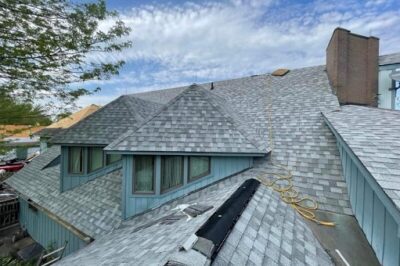

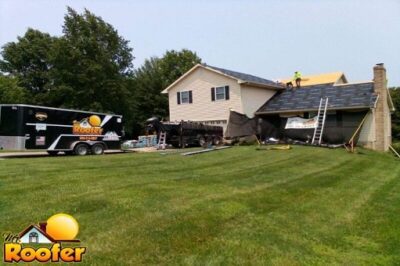
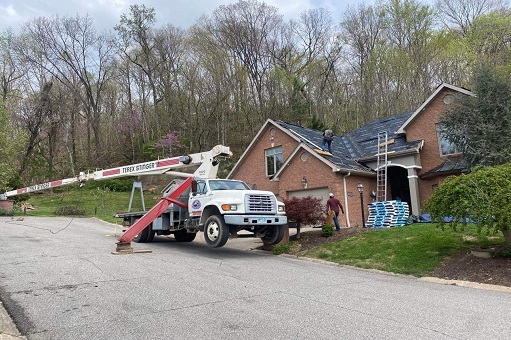
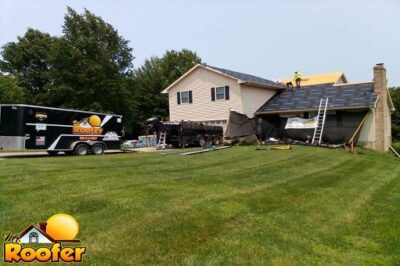
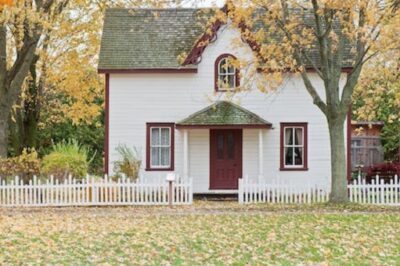
0 Comments